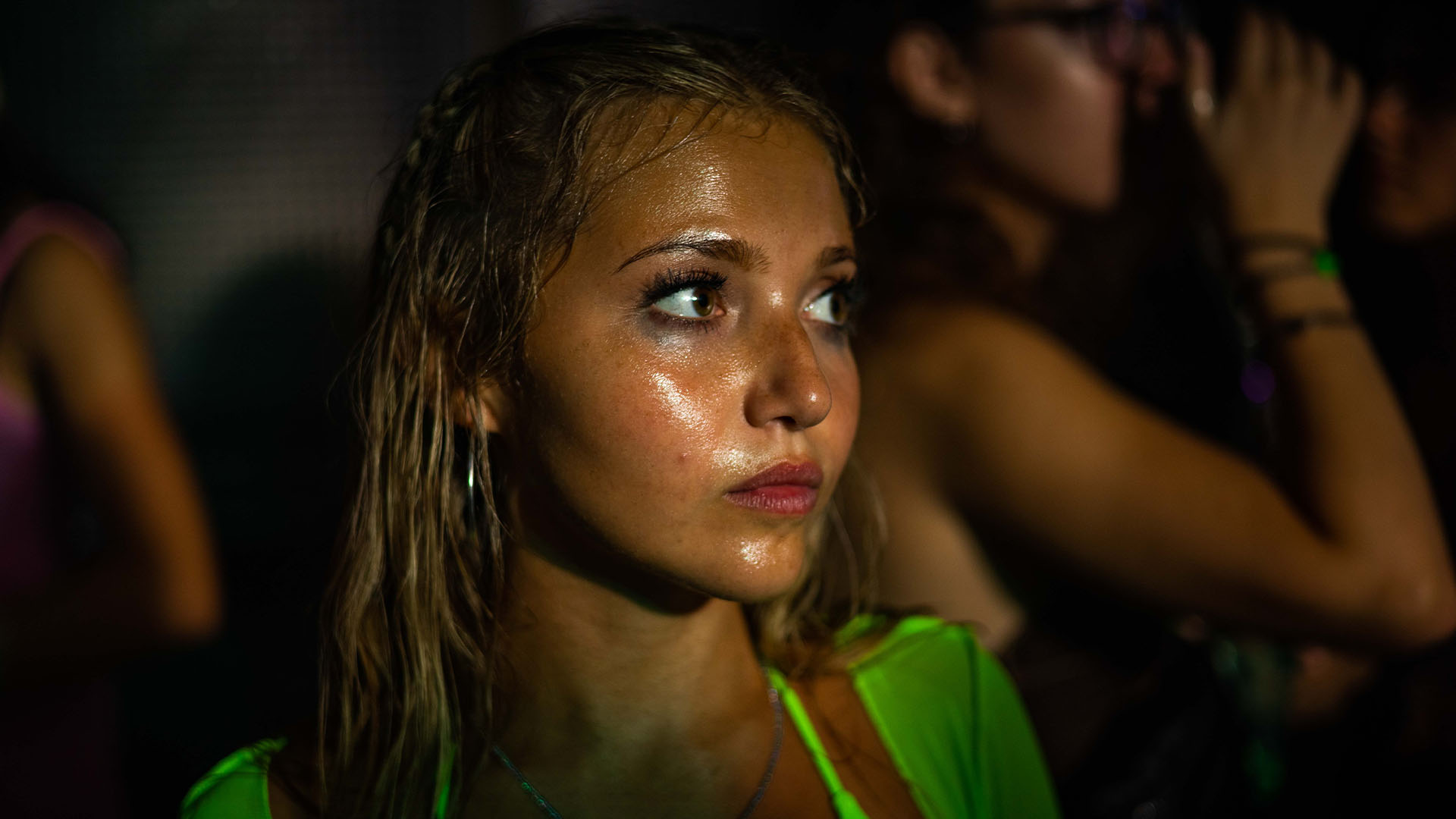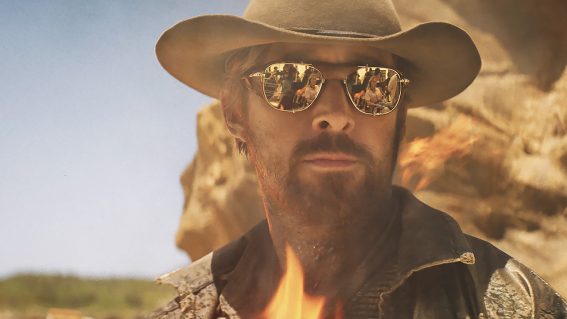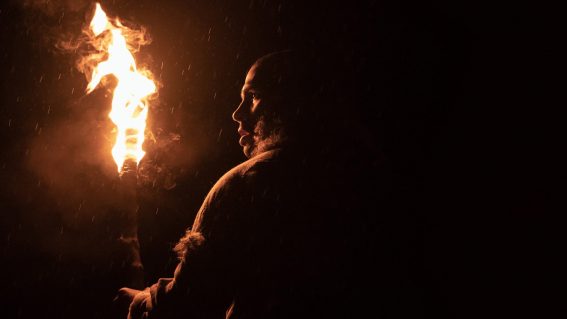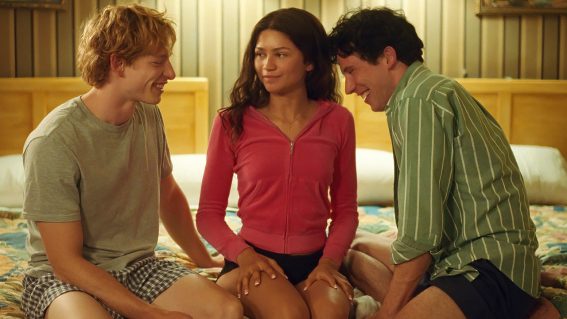Cannes prize-winner How To Have Sex unflinchingly tackles sexual assault and the complexity of consent

Winner of the top prize in the Un Certain Regard competition at Cannes Film Festival, How to Have Sex follows three British teenage girls on a rites-of-passage holiday – drinking, clubbing and hooking up. An impressed Rory Doherty reviewed the film from Cannes in 2023.
Content warning: discussion of rape and sexual assault
For Brits, the only thing more common than taking a binge-drinking holiday at the tail end of school, usually to an overcrowded resort in Malia, Magaluf, or Málaga, is the later reflection of just how unsafe it all was. How to Have Sex marks another accomplished debut for a young female British filmmaker, and like Saint Maud, Aftersun, and Blue Jean before it, Molly Manning Walker uses her breakout film to tell an urgent and resonant story, one that’s rich in character and leaves a lasting impression. It’s a film that unflinchingly tackles sexual assault and the ways that young women’s inexperience with consent can be manipulated in environments with many dangers and few lifelines.
Sixteen-year-old Tara (Mia McKenna-Bruce) has reached a difficult stage in growing up; she’s crossed the threshold into excessive drinking, but her body-conscious and sexual insecurities leave her feeling alienated by all the sex-mad, party-loving pressures amplified by the deafening party resort. Sex and alcohol have opened up to her, but they can only be enjoyed in very limited, reductive ways; they promise an excessive, damaging view into the grown-up world, and Tara has no choice but to take them on their terms.
Stylistically, Manning Walker opts for realism, with shrieking, overlapping dialogue and overblown but natural performances (yes, natural—teenage Brits really are this obnoxious). The characters that fill out the ensemble—including Tara’s friends Skye (Lara Peake) and Em (Enva Lewis) and a Northern gang from the hotel room opposite Badger (Shaun Thomas) and Paddy (Samuel Bottomley)—could come across grating in their unapologetic laddishness, but there’s an emotional honesty to them all. In a way, the characters see their behaviour also as a performance, a way of fitting in and insisting on confidence they don’t feel they possess. And of course, no matter how party hard and obnoxious they are, these youngsters deserve happiness, and to be safe when they get it.
How to Have Sex stands on the shoulders of McKenna-Bruce, whose observations on the liminal state between childhood and adulthood radiate with confidence. Tara partakes in ritualistic drinking games one moment and cracks painful dad jokes the next, flitting back and forth in maturity as she strives to find her footing. One perfect moment has her downing a drink (of pure vodka, remember those days?) in the bathroom mirror, before balancing the cup on her head in an adorable, “so random” fashion. How to Have Sex doesn’t infantilise its characters, but instead stresses how crossing the threshold from kid to adult isn’t as clearly defined as hookup and binge drinking culture makes it seem. Tara is strong-willed, but also vulnerable, and McKenna-Bruce’s wide eyes under smeared make-up are often completely lost somewhere she can’t navigate or make safe.

The chemistry between the cast, both friends and romantic interests alike, crackles with adolescent excitement—but is also charged with constant anxiety knowing where the story is heading. The first time Tara is assaulted in the film, it’s something she verbally agreed to—but the audience (not to mention the man assaulting her) can plainly see it was consent obtained under duress, one of many situations the young woman finds herself in where she’s given no choice to say no. How to Have Sex is littered with moments where Tara’s wellbeing is not prioritised, which combines with the pressure to say nothing about personal mistreatment and discomfort to create an utterly alienating vibe; Tara’s dissociation on a packed club floor is so accurately realised it’s painful.
If some of the portrayals of chauvinistic, hyper-sexualised resort parties feel over-exaggerated, trust that the real thing is not far off. Often, Manning Walker will submerge us in throngs of faceless youth, whose individuality has been eroded in the face of an unforgiving and violating party culture. But equally stirring are the shots of empty, littered streets the morning after benders, ones Tara has to potter down after being isolated from her friends. A memorable story choice has Tara not return home the first night she was assaulted—but only because she was rescued by a Scottish partier (Eilidh Loan), who provides her shelter for the night. It’s a bittersweet moment of kindness: how come safety is allowed for some youngsters but others are violated? As How to Have Sex reminds us, most cases of rape happen in the safety of our own beds.

A truncated, confused final minute may finish How to Have Sex on a clumsier-than-desired note, but the rage and sadness at what Tara goes through is so effectively articulated in the film’s second half, it’s impossible to ignore. Manning Walker’s debut concerns itself with the complexity of consent and the factors that fail to safeguard us from it. Fretting over who could have intervened to thwart abuse will be in vain when you consider rape is a crime embedded into culture, where rapists have a myriad of methods with which they can conceal their crimes and manipulate their victims. How to Have Sex shows a tragically common experience through a uniquely British lens, resulting in an impossibly affecting story of vulnerability and survival.
Originally published by Flicks on May 29, 2023


















